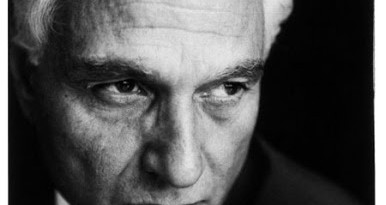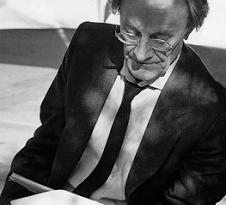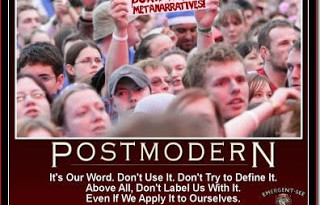 Yesterday, I preached the first in a new evening series at Mack on the book of James titled “Wake Up and Smell the Coffee“. James urges us to put our faith into action, and is like a shot of coffee to wake us up in our Christian lives. Below is the text of my sermon.
Yesterday, I preached the first in a new evening series at Mack on the book of James titled “Wake Up and Smell the Coffee“. James urges us to put our faith into action, and is like a shot of coffee to wake us up in our Christian lives. Below is the text of my sermon.
Introduction
When was the last time you received a letter from someone? Not just a bill or advert, but an actual letter from a friend, written to you personally?
In this electronic age, many of us are more likely to dash off an email or a text message, or to write on someone’s Facebook wall. It’s great that we can keep in touch so easily. But there’s something special about a letter you can touch and hold on to. Our emails and texts are transient scraps of thought sent today and deleted tomorrow.
 But fortunately for us, James and other leaders of the early church, such as Peter and Paul, relied on good old pen and paper, or probably ink and papyrus. These weren’t just passing thoughts, the first century equivalent of “Train running late, C U soon”.
But fortunately for us, James and other leaders of the early church, such as Peter and Paul, relied on good old pen and paper, or probably ink and papyrus. These weren’t just passing thoughts, the first century equivalent of “Train running late, C U soon”.
Instead, they were moved and inspired by God the Holy Spirit to write down wisdom, teaching, and encouragement. The church quickly recognised these letters as being inspired by God himself. Christians carefully copied them and handed them down through the centuries. Through these letters, God is speaking words of eternal truth to his people throughout history, right down to us today. These letters, or “epistles”, make up 21 out of the 27 books of the New Testament.
So who was James? Who was he writing to, and why? What does a letter written almost 2000 years ago have to say to us today?
Matthew 13:55 tells us that James was one of Jesus’ younger brothers. Although we often refer to the Virgin Mary, after she had miraculously given birth to Jesus, she and Joseph went on to have a normal family. In Acts we see that James was a leader in the early church, and history tells us he was executed in 62 AD.
The book is written to “the twelve tribes scattered among the nations” – the 12 tribes referring to Israel, so mainly to Jewish Christians. It often talks about the Law, the Jewish Torah. It is similar in style to Jewish wisdom literature like the book of Proverbs. It has lots of memorable advice on different topics, moving quickly from one subject to another – which is why we’ve decided to tackle a different theme each week, rather than going through it chapter by chapter.
Throughout his letter, James is calling us to action. “Count it all joy”, “Ask God”, “Don’t be deceived”, “Know this”, “Receive the Word” are just a few of the many commands he gives us. His aim to spur us into action, to give us a kick up the backside, a shot of coffee for our spiritual lives.
Over the next few weeks, we’ll be looking in detail at the practical instruction James has for us in various areas of our lives. Good works aren’t an optional extra, but a vital part of living out our lives as Christians. I urge you to think practically each week about what specific steps you can take to live out your faith in God and love for God more fully. As we go through James, identify at least one thing each week to work on. Write it down. Pray each day about it. Tell some Christian friends about it, and get them to check up on how you’re doing.
We often put up our defences to avoid the full force of what the Bible is telling us:
- Ignoring what God says to us
- Pretending not to understand God
- Thinking we can have faith without deeds
- Dismissing God’s commands as impossible
But James steam-rollers through all of our defences, by reminding us of God’s gifts to us. Let’s see what he’s got to say to us:
Defence 1: Ignoring what the Bible says
 James tells us “anyone who listens to the word but does not do what it says is like a man who looks at his face in a mirror and, after looking at himself, goes away and immediately forgets what he looks like”.
James tells us “anyone who listens to the word but does not do what it says is like a man who looks at his face in a mirror and, after looking at himself, goes away and immediately forgets what he looks like”.
A question: when you read the Bible, do you feel at peace? Be honest – don’t just give a pat good Christian answer. Does the Bible make you feel uncomfortable? Do you ever get the sense that there something missing? You look around at your life as a Christian and the church here around you, on the one hand – and then you read the Bible, see the life of the early church, and you look at Jesus on the other hand. And there’s a contrast. You read the New Testament, and being a follower of Christ seems to demand a whole other level of commitment and adventure.
If the Bible makes you feel uncomfortable, then there’s still hope for you. Part of you remembers what you saw in the mirror. The Bible isn’t supposed to be comfortable. When I look in the mirror first thing in the morning, my first thought isn’t “My, what a handsome chap”. It’s more like “Help! There’s a Yeti shuffling towards me! Oh, wait, that’s my reflection!” Looking into the mirror when I’m in an early morning state isn’t comfortable, but it does show me I need to shave, wash, have a cup of tea and put some clothes on.
If the Bible never makes you feel uncomfortable, be worried – you might already be too good at blocking out anything challenging, anything that would force you to act or to change. You may have already deafened yourself to what God is trying to say to you.
One way in which I think I’m in danger of deafening myself, and perhaps some others of you too, is in the way we talk about the preaching. If we actually get round at all to discussing the sermon, we so often spend our time complaining about the preacher’s style (or lack of it), the length of the sermon (too long or too short), minor points of disagreement – anything and everything except what we think God might have been saying to us through his word.
But there is always hope; God gives sight to the blind and opens the ears of deaf. Pray to him, go and “look intently into the perfect law that gives freedom”; “humbly accept the word planted in you.” Read the Bible until your skin crawls! Put it into action, and keep on putting it into action, and James promises you, you will be blessed by God’s gift of his word.
Defence 2: “The Bible is too hard to understand”
 It’s all very well to want to put the Bible into action, you might say, but how can I know what exactly the Bible says? There are so many interpretations, after all.
It’s all very well to want to put the Bible into action, you might say, but how can I know what exactly the Bible says? There are so many interpretations, after all.
You’ve probably heard the saying “God says it; I believe it; that settles it.” We often pooh-pooh such a naive approach. We’re wise not to assume that we’ll always understand the Bible right first time. But if we do believe that God has said something, surely that should settle it – not as a stick to beat other people with, but for us to follow in our own beliefs and behaviour?
Philosopher Soren Kierkegaard claimed the following:
“The matter is quite simple. The Bible is very easy to understand. But we Christians are a bunch of swindlers. We pretend to be unable to understand it because we know very well that the minute we understand it, we are obliged to act accordingly. Take any words in the New Testament and forget everything except pledging yourself to act accordingly. My God, you will say, if I do that my whole life will be ruined. How would I ever get on in the world?”
If we think we can’t understand the Bible, James gives us a very simple solution in 1:5: “If any of you lacks wisdom, he should ask God, who gives generously to all without finding fault, and it will be given to him”
So as we look at the book of James, I want to challenge you – don’t overcomplicate things. Take the Bible at its word, simply pledge yourself to act on whatever God says to you. If you don’t understand it, study it, read books and commentaries, talk to other Christians. But most of all, pray to God for his gift of wisdom.
Defence 3: “We’re saved by faith, so I can sit back and relax”
But wait a moment – Paul tells us in Romans 3:24 that we are “justified freely by God’s grace”, and again in Ephesians 2:8-9 that we are saved “by grace”, “through faith”, “not by works”, so that no-one can boast”. Does this mean we can sit back and relax – how we live doesn’t really matter?
But if you think like this and live like this, you show that you haven’t actually understood grace. Worse, it might be a sign that your faith itself is not faith at all, and you may not actually be a Christian in the first place!

James tells us that faith by itself, just believing in your head, if not accompanied by action is dead. He points us to the story of Abraham and Isaac in Genesis 22 to illustrate his point. God tested Abraham’s faith by asking him to sacrifice his son Isaac. Abraham was willing to do so, trusting that God would still keep his promise to make Abraham’s descendants a great nation. God sent an angel and a ram to tell Abraham that he, God, would provide the sacrifice.
James goes on to say that “the scripture was fulfilled that says ‘Abraham believed God, and it was credited to him as righteousness’ and he was called God’s friend. You see that a person is justified by what he does and not by faith alone.”
We sometimes struggle to understand the Bible because we lose our place in the story. For example, you might get the impression that the Jews in the Old Testament had to obey the Law in order to be saved – after all, haven’t you got all those rules, in Exodus, Deuteronomy and Leviticus?
But if you follow the story, you’ll see that God rescues Israel first, he brings them out of slavery in Egypt to be his people, and then gives them the Law. Grace and mercy were woven into the very fabric of the Old Testament law, just as they are woven into the perfect law that brings freedom for us now.
James might seem to suggest that Abraham somehow earned his God’s approval by his actions. But if we pay attention to Genesis, we’ll see that the point at which Abraham believed God, and was considered righteous, was way back in chapter 15, before Isaac was even born! Abraham believed God’s promises, and that’s what made him God’s friend, and then obeyed God in fulfilment of his faith.
So James isn’t telling people who aren’t Christians that if you do lots of good works, then you will be accepted by God because of them. The moment we have faith in Jesus, when we trust in his death and resurrection, God accepts us completely and entirely because of what Jesus did, not because of what we do.
Just as a side note, this is something that distinguishes us, as an evangelical church in the Protestant tradition, from our Roman Catholic brothers and sisters. The Catholic Church teaches that we are accepted by God on the basis of the faith and works that he produces in us over time. Some Catholics are believers, some are not – the same is true of any church or denomination; we should disagree lovingly and courteously.
But Catholic teaching on this point takes the emphasis away from Jesus onto us, which brings a greater danger of relying on ourselves and our own efforts, rather than having faith in what God has done. The doctrine of salvation by faith alone was the fundamental divide when Protestants broke off from the Catholic Church in the Reformation 500 years ago, and despite many efforts to find some compromise, remains a key point of disagreement today.
If faith is the beating heart that gives life, then our actions are the pulse that shows we are alive. It’s not the pulse in your neck or wrist that keeps your body going, but if you can’t find your pulse, it’s a clue something is badly wrong with your heart. Living faith always expresses itself in love. James is writing to tell us how we should be living as a result of what God has done for us.
When we realise what God has done for us then “I’ve got to” becomes “I get to”. Nothing we do can make God love us any more or any less, so we are free to do good works, not out of a sense of obligation, but simply out of love. Real faith in God doesn’t mean just believing in your head that God exists, but trusting him and loving him, because of the gift of God’s grace.
Defence 4: “I’m never going to be perfect in this life anyway”
But we often think that the heights of love, generosity, faith and goodness commanded in God’s word are out of our reach. We hear stories of great heroes of the faith, such as George Muller, who depended on God to provide for the orphans he cared for, and saw God provide for him at the last minute time and time again. We think we can never match up. We recognise in theory that we should “be perfect as the Father is perfect”, but in practice we dismiss it as a lofty ideal that can safely be ignored.
 But James tells us that Elijah was a man just like us. The heroes of the faith were all ordinary people, just like you and me. They had faith in an extraordinary God, and that same God is our God today. He answers prayers and changes lives, and will answer your prayers and change your life if you trust him.
But James tells us that Elijah was a man just like us. The heroes of the faith were all ordinary people, just like you and me. They had faith in an extraordinary God, and that same God is our God today. He answers prayers and changes lives, and will answer your prayers and change your life if you trust him.
Throughout the Bible, certain people are recognised as “righteous”. Genesis tells us that Noah was righteous, blameless in his generation. Throughout Psalms and Proverbs, the ways of the righteous and ways of the wicked are contrasted. In Luke’s Gospel, Zechariah and Elizabeth, the parents of John the Baptist, are described as “upright in the sight of God, observing all the Lord’s commands and regulations blamelessly”.
“Righteous” in these cases seems to refer to the people themselves, not just them being accepted as righteous because of Jesus. It doesn’t mean they are completely perfect – the Bible tells us about their mistakes – but on the whole, they are living holy lives of faith in God, and trust him for forgiveness and grace when they mess up. With God at work in us, it is within our grasp to genuinely become righteous people, people marked by faith and love.
In fact, it’s easier for us now than for the saints of the Old Testament! The big difference between the Old Testament and the New Testament isn’t that one is a covenant of law and the other is of grace – both contain law, and both are of grace.
Through Jesus, we have now received the promise of the New Covenant that God made in Jeremiah 31:33 when he said “I will put my law in their minds and write it on their hearts”. God has given us a new inner power to live holy lives – he has come to live in our hearts by his Spirit. As James put it “He chose to give us birth through the word of truth, that we might be a kind of firstfruits of all he created”.
 If we were just left on our own, without God to help us, it would be unreasonable to command us to be holy. You might as well tell a hamster to fly; it isn’t going to happen, no matter how hard the hamster tries!
If we were just left on our own, without God to help us, it would be unreasonable to command us to be holy. You might as well tell a hamster to fly; it isn’t going to happen, no matter how hard the hamster tries!
But we aren’t hamsters being told to fly – we are birds with injured wings. If we know Jesus, if we have placed our faith in him, then he has healed our broken wings. When James reminds us to “love your neighbour as yourself”, God isn’t asking the impossible, telling us to be something we are not, because he has given us the gift of new life, the gift of his Spirit.
God is telling us: little bird, your wings are healed – become what you are, and fly!

 Continuing my series on Christianity and Postmodernism:
Continuing my series on Christianity and Postmodernism:








 James tells us that faith by itself, just believing in your head, if not accompanied by action is dead. He points us to the story of Abraham and Isaac in Genesis 22 to illustrate his point. God tested Abraham’s faith by asking him to sacrifice his son Isaac. Abraham was willing to do so, trusting that God would still keep his promise to make Abraham’s descendants a great nation. God sent an angel and a ram to tell Abraham that he, God, would provide the sacrifice.
James tells us that faith by itself, just believing in your head, if not accompanied by action is dead. He points us to the story of Abraham and Isaac in Genesis 22 to illustrate his point. God tested Abraham’s faith by asking him to sacrifice his son Isaac. Abraham was willing to do so, trusting that God would still keep his promise to make Abraham’s descendants a great nation. God sent an angel and a ram to tell Abraham that he, God, would provide the sacrifice.

 If we were just left on our own, without God to help us, it would be unreasonable to command us to be holy. You might as well tell a hamster to fly; it isn’t going to happen, no matter how hard the hamster tries!
If we were just left on our own, without God to help us, it would be unreasonable to command us to be holy. You might as well tell a hamster to fly; it isn’t going to happen, no matter how hard the hamster tries!










